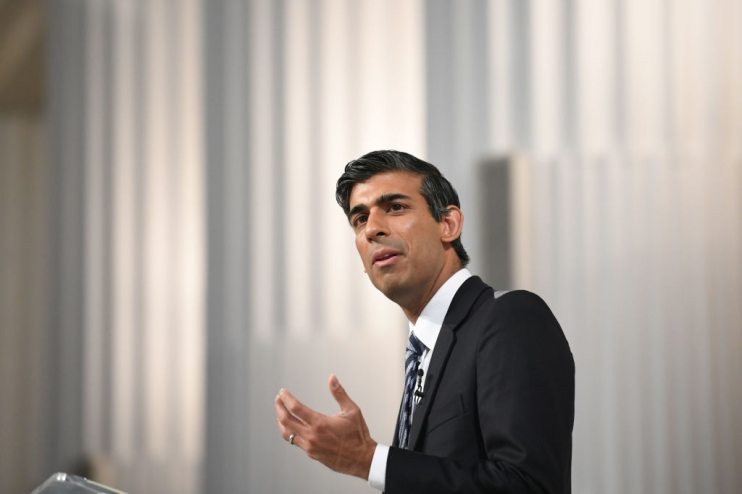Sunak resists calls to scrap tax hikes despite lower than expected borrowing

The government borrowed much less than expected over the year so far, indicating Chancellor Rishi Sunak has room for giveaways at tomorrow’s spring statement.
The UK borrowed nearly £26bn less than the fiscal watchdog expected in the year to February, the Office for National Statistics (ONS) said today, freeing up some room for the Chancellor to launch measures to ease what is expected to be the steepest fall in living standards since the 1970s.
Better than forecast tax receipts improved the UK’s fiscal position.
“At the very least the Chancellor will have more room to manoeuvre in the short term,” James Smith, research director at the economic think tank the Resolution Foundation, said.
“The Chancellor should take this opportunity to provide emergency income support to families through this cost of living crisis,” he added.
Tomorrow’s spring statement has been characterised by the Treasury as “policy-light”.
Sunak is contending with soaring inflation pushing the government’s interest bill to record levels.
The government did borrow more than the fiscal watchdog had pencilled in last month to foot a £8.2bn interest bill, the highest level ever recorded for a February.
An old measure of inflation has climbed to the highest level since 1991, nearing eight per cent, triggered by a global supply crunch and accelerating energy prices.
This has raised the amount of money the government has to spend on servicing its debt.
A large chunk of the UK’s debt pile is linked to the retail price index meaning rises in inflation swells the amount it pays out to investors.
February’s payment was over £2.5bn higher than the Office for Budget Responsibility had expected at the October budget.
Sunak resisted calls to scrap a planned 1.25 percentage point national insurance hike, stressing rising interest rates and inflation underline the importance of firming up the public finances.
“With inflation and interest rates still on the rise, it’s crucial that we don’t allow debt to spiral and burden future generations with further debt,” he said.
Others said intensifying geo-political tensions caused by Russia invading Ukraine may deal a heavy blow to the public finances over the next year.
“Rising energy and commodity prices means inflation this year is on course to exceed the OBR’s forecast by a significant margin,” Martin Beck, chief economic adviser to the EY Item Club, said.
“By depressing real income growth, high inflation will weigh on economic activity and employment, negatively affecting tax receipts. It will also add further to the interest cost of inflation-linked gilts,” Beck added.
The value of the UK’s stock of debt is the equivalent to nearly 95 per cent of the size of the country’s economy, largely driven by the government being forced to borrow billions of pounds to respond to the Covid-19 crisis.